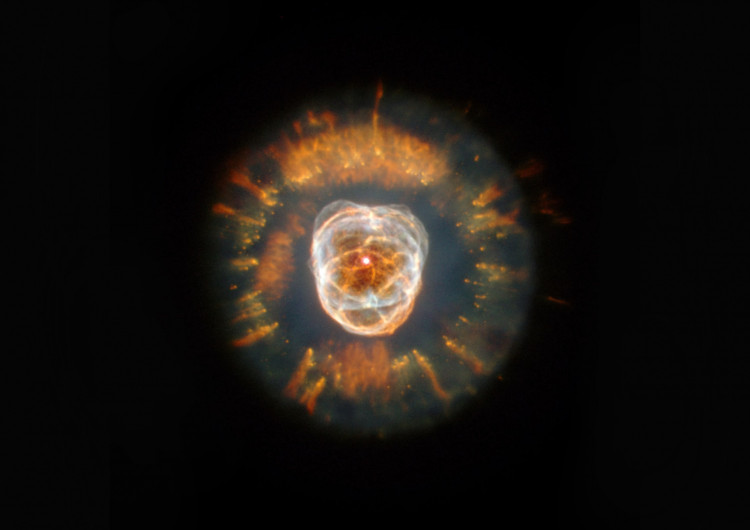Traces of rare forms of iron and plutonium have been discovered at the bottom of the Pacific Ocean, following a violent event in space that created the materials and sent them raining down on our world.
According to a report published in the journal Science, the extraterrestrial debris landed on Earth within the past 10 million years. When it reached the Pacific Ocean and settled nearly a mile deep, the substances became absorbed into layers of a rock that were later hauled up and given to researchers by a Japan oil exploration company.
"It's amazing that a few atoms on Earth can help us learn about where half of all the heavier elements in our universe are synthesized," said Anton Wallner, the paper's first author and a nuclear physicist.
Fresh specimens like these could help scientists understand how elements heavier than iron, such as gold, platinum, uranium and plutonium, were formed in the universe.
Plutonium, in particular, is often regarded as artificial because of its scarcity outside of human creations. It is the last of 94 naturally occurring elements listed in the periodic table. It can be found in uranium ores in trace amounts.
Astrophysicists have long believed it is often formed randomly in the universe. However, they have had difficulty locating the exact location of its sources.
Supernovas were thought to be a main source. A huge star's sudden gravitational collapse converts all of its matter into heavy elements that rocket out into space in a gigantic blast.
These stray elements eventually combine with more common matter to form the raw materials for new stars and planets, or, in the case of humans, life.
For astronomers, who already know where the rest of the Periodic Table comes from, determining the origins of these elements is a big deal.
Hydrogen and helium were created in the Big Bang, for example, and elements like carbon and oxygen form in the cores of stars. Carl Sagan once said: "We are made of star stuff."






